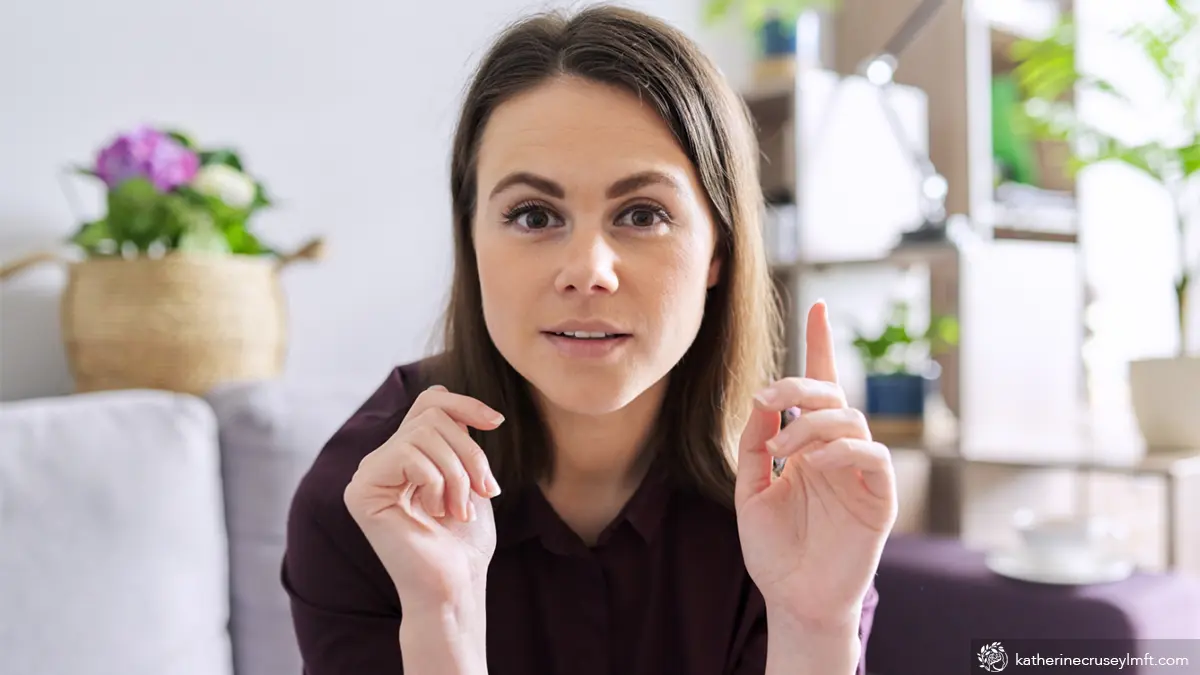How Does PTSD Affect Communication in Relationships?

Post-Traumatic Stress Disorder (PTSD) is a mental health condition that can significantly disrupt an individual’s emotional and psychological functioning. One of the most profound impacts is on interpersonal relationships, especially intimate ones. Understanding how PTSD affect communication in relationship dynamics is crucial for both partners to foster empathy, connection, and healing.
What Is PTSD?
PTSD develops after experiencing or witnessing a traumatic event. For example, combat, assault, accident, or natural disaster. Symptoms include flashbacks, anxiety, irritability, emotional numbness, and difficulty concentrating. And all of these can interfere with daily life and interactions.
This whimsical poster design is a gentle reminder for how to identify the feelings you might be having right now. It consist of 8 scenarios and descriptions.
How PTSD Affect Communication in Relationships
PTSD can create barriers to open, honest, and supportive communication. Here’s how:
1. Emotional Numbing and Withdrawal
One of the core symptoms of PTSD is emotional detachment. A person may appear distant, unresponsive, or indifferent. This numbing makes it hard to express affection, empathy, or vulnerability, leading to misunderstandings or feelings of rejection in their partner.
In addition, PTSD affect communication in relationships by decreasing intimacy and emotional connection. It also causes misunderstandings and conflicts, leading to feelings of isolation for both partners. As a result, trust and mutual support becomes challenging.
Katherine Crusey, LMFT individualized therapy and tools help each partner to work on these issues to avoid growing apart or feeling emotionally neglected.
2. Hypervigilance and Misinterpretation
People with PTSD often remain on high alert. They might interpret neutral remarks as threatening or confrontational. This overreaction can escalate minor disagreements into major conflicts, straining communication and trust.
3. Avoidance of Difficult Conversations
Avoidance is a common coping mechanism. A partner with PTSD may steer clear of emotionally charged conversations or topics that trigger painful memories. As a result, issues are left unresolved, creating emotional distance.
4. Irritability and Anger Outbursts
PTSD can lead to heightened irritability or unexpected anger. These emotional outbursts can be confusing and hurtful to a partner. In these cases, the partner becomes reluctant to initiate conversations or express needs.
5. Trouble Expressing Feelings
Those with PTSD might struggle to articulate their emotions clearly. They may fear being judged or misunderstood, which can lead to bottling up feelings or shutting down altogether.
Strategies for Improving Communication
Despite the challenges, healthy communication is possible with the right support and strategies. In your psychotherapy sessions with Katherine Crusey, LMFT, she will give you the tools to:
1. Educate Yourself
Understanding PTSD helps partners respond with compassion rather than frustration. You will learn about symptoms and triggers to reduce misunderstandings.
2. Create a Safe Space for Dialogue
Encourage open, judgment-free conversations. Let your partner express themselves at their own pace.
3.Practice Active Listening
Show empathy by truly listening—without interrupting or rushing to fix things. Sometimes, just being heard is enough.
4. Develop Coping Strategies Together
Establish routines, use grounding techniques, or practice mindfulness to reduce stress and improve emotional regulation.
Final Thoughts
Understanding how PTSD affect communication in relationships is the first step toward healing. With patience, empathy, and the right support, couples can navigate the challenges of PTSD together and rebuild stronger, more connected relationships.
You may also enjoy reading: The Benefits of Psychotherapy: Why Talking Helps Heal
Related Posts

How To Stand Up To a Gaslighter: Reclaim Your Power
Gaslighting is one of the most manipulative and damaging forms of emotional abuse. It leaves…

What is the EMDR Therapy Method?
The EMDR therapy method, or Eye Movement Desensitization and Reprocessing, is a structured psychotherapy approach…


